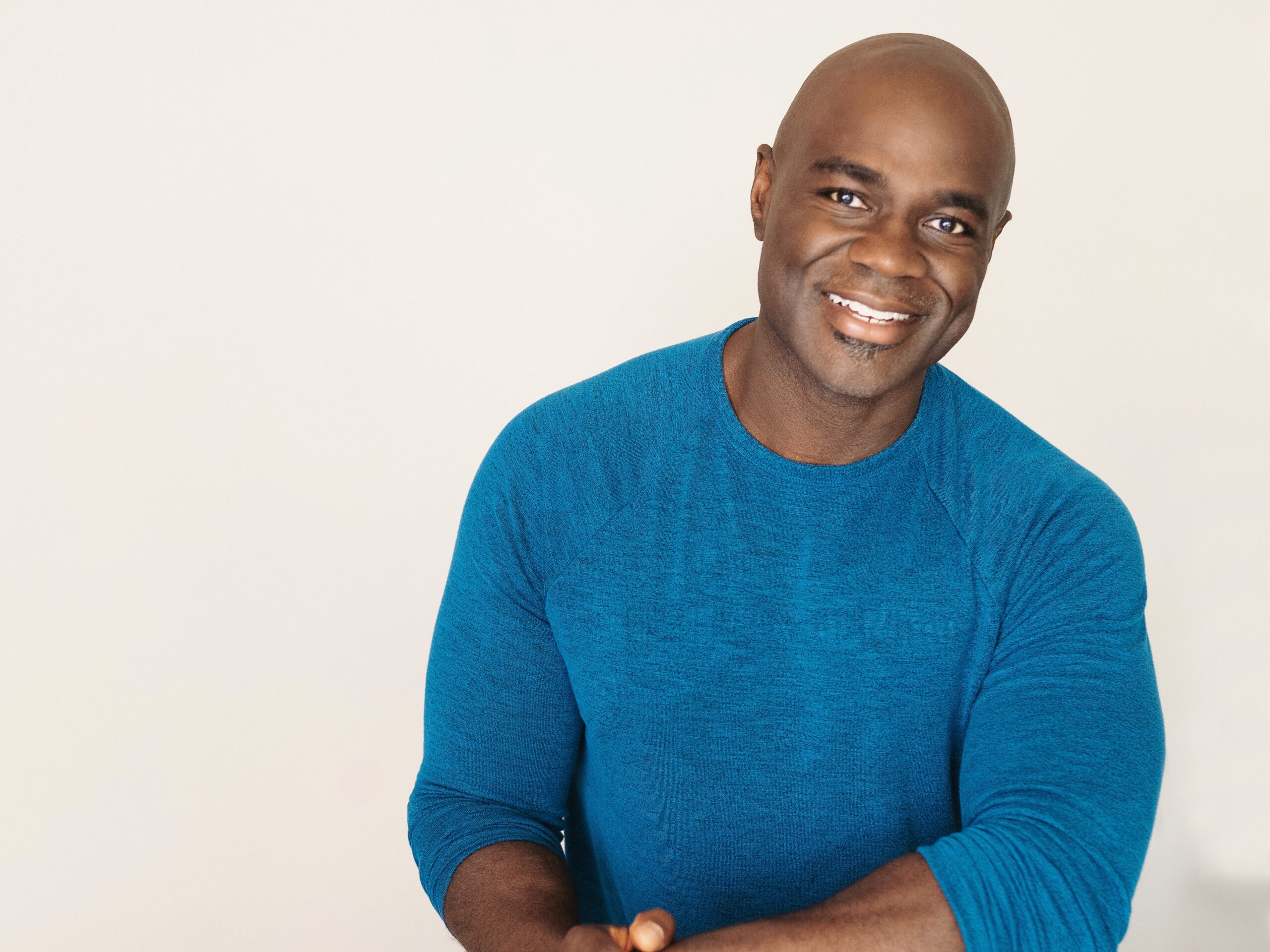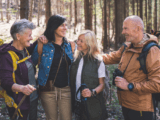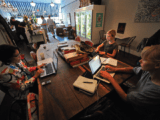Roland Acheampong helps kids build self-esteem by learning how to sew. The former athlete was running a sports mentorship company when he met Denise Wild, a sewing studio entrepreneur. They married each other and their businesses to create a mentorship program through sewing. He spoke with Amy van den Berg.
Beginnings
You may unsubscribe from any of our newsletters at any time.
I grew up in Regent Park in Toronto. At the time, there was a lot of crime and violence and drugs and all kinds of stuff that kids shouldn’t be exposed to. Typically, when you’re in that kind of environment, it’s easy to fall into that lifestyle. I was fortunate to have mentors to guide me and lead me in the right direction.
I’m an athlete so I had an athletic scholarship. I also had an academic scholarship so I decided to take that and go to the University of Western Ontario. After graduating, my track career came to an end because of a pretty bad injury. Still, I was doing okay in the business sector. I worked for IBM, and for small start-ups for a while.
Passing it forward
With my best friend, I started a company that mentored kids through sports. Instead of teaching a kid how to kick a soccer ball or shoot a basketball, we focused on mentoring them and teaching them various life skills that I acquired through sport and I applied to the real world. Having been mentored myself and knowing the importance of mentorship I wanted to give back and do the same for the young generation.
More on Broadview:
- Sask. Green Party leader: province is ‘perfect place’ for clean energy shift
- Camilo Garay on finding mentors in unlikely places
- Joshna Maharaj has revolutionized food in hospitals and schools. She’s not done yet.
Sewing
When I met her, my wife used to teach sewing out of her one-bedroom apartment in Toronto and the only way I could get a date with her was by taking lessons. I started and I thought, this sewing thing is pretty cool!
There’s a stereotype that’s connected with sewing: that it’s only what women or old ladies do and it’s not cool. So, I thought if I can combine that sports component — the high energy, feeling a part of the team, the excitement — with mentorship and bring in amazing mentors, the majority of whom are men, this could be something that could resonate with children and make sewing cool while having a significant impact.
Love and marriage
I ended up getting married to the girl who taught me sewing, and basically when we got married, we married our businesses. She had built what became the largest sewing school in North America. And I had my sports mentorship company. I don’t even teach sports anymore: it’s exclusively a sewing program. It just has a lot more impact.
The impact of sewing
As much as I love sports and know its importance, not everyone can participate. Some kids might not be physically able to and for other kids, it’s just not their thing. Crafts is something I’ve noticed creates a level playing field—you don’t necessarily excel over someone else when doing crafts.
The program
We walk into the school and we set up usually in the library or the gym. We bring 30 to 60 machines, depending on how large the class might be. The kids walk into the room and their jaws drop. They’ve never seen a sight like that: firstly, so many sewing machines in one place, and secondly, the crew that I bring in teaching them. They’re like, what’s going on here, are we learning sewing or are we learning how to play football?
Breaking stereotypes
Some of my crew are former professional athletes so have actually played in the NFL or CFL. I have a guy who was a professional boxer, there’s another guy who was a doorman at a nightclub — he’s like six-foot-five, 250 pounds of muscle. Some of the guys are covered in tattoos. When you see them, you’re just kind of taken by that.
We all come from different walks of life. Some of us grew up in the inner city, some of us have gone through rough times, and we’ve all been able to overcome these obstacles. We all have an interesting story to tell and we all are mentors. So, a lot of kids can identify with that, and being in that position to inspire the kids with our stories [and] with the activities we do is very special.
Learning and growing
We really focus on confidence. The majority of the kids that we teach haven’t touched a sewing machine before. We start on paper — which has very special messages on them like “I can do it,” “I believe in myself,” or “I can overcome anything” — and we get them to practice on the paper and they build their confidence.
When they first walk into the room, they’re a little unsure, not knowing exactly what’s going to happen, but by the time they leave the class, they are beaming. They’ve all completed a project, they’ve made something with their own hands from scratch and are feeling so much pride and joy. It’s pretty nice to see that.
What do you make?
There are kids as young as four years old in the program. With them, we make hand-puppets and each have special character traits like kindness, forgiveness, confidence, or self-respect. We call them “happy helpers.” We get into these topics a little bit as we’re teaching the kids how to make that project. For the older ones, we usually make cellphone holders or superhero bands that have magic powers like confidence or bravery.
Within the window of time that we have, the impact that we have is pretty unique. They come in without any experience but they walk out with something pretty neat and we’ve been able to deliver a message.
COVID-19
As of March, we had to pause because obviously we only operate when schools are operational, but over the summer, we came up with an online component. We started a virtual program and we did a couple of summer camps that were very successful. So, we think we’re going to continue with that model for now until we’re allowed back in schools.
The impact you have on the kids is so much more powerful when you’re in the same room and they can interact with us and see us in person. For now we’ll run virtual programs as much as we can for as long as we can.
A shorter version of this interview first appeared in Broadview’s January/February 2021 issue with the title “Roland Acheampong.”
***
Amy van den Berg is a writer based in northern Ontario.
We hope you found this Broadview article engaging.
Our team is working hard to bring you more independent, award-winning journalism. But Broadview is a nonprofit and these are tough times for magazines. Please consider supporting our work. There are a number of ways to do so:
- Subscribe to our magazine and you’ll receive intelligent, timely stories and perspectives delivered to your home 10 times a year.
- Donate to our Friends Fund.
- Give the gift of Broadview to someone special in your life and make a difference!
Thank you for being such wonderful readers.
Jocelyn Bell
Editor/Publisher














